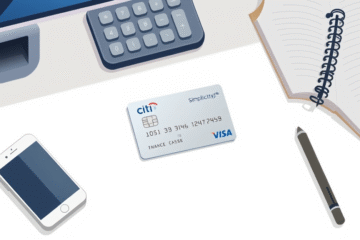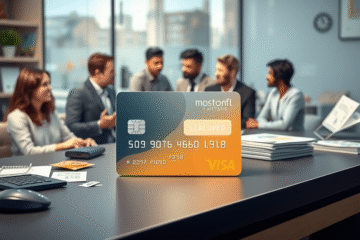Weighing The Pros And Cons Of Credit Cards
Credit Card usage has become a cornerstone of modern finance, offering a blend of convenience and potential financial benefits.
In this article, we will delve into the various advantages that credit cards provide, such as ease of transactions, opportunities for rewards, and ways to build a positive credit history.
However, like any financial tool, they come with their own set of drawbacks, including the risk of overspending and higher interest rates.
Join us as we explore both the perks and pitfalls of using credit cards to better understand their role in personal finance.
Credit Cards in Everyday Finances
Credit cards hold a significant place in everyday financial management, representing both convenience and responsibility.
By providing immediate purchasing power and unlocking various benefits such as rewards and cashback, credit cards help individuals manage cash flow effectively.
Yet, they also come with disadvantages that require careful consideration to avoid financial pitfalls.
When wisely utilized, a credit card enhances one’s credit score through timely payments and accountable borrowing, allowing for potential benefits in future borrowing capacity.
However, a lack of discipline can lead to high-interest debt and suboptimal financial outcomes.
Recognizing their dual nature is essential for maximizing their advantages.
| Potential Upside | Potential Downside |
|---|---|
| Reward points | High-interest debt |
| Fraud protection | Risk of overspending |
| Emergency funding | Possible credit-score damage |
Understanding these elements offers a balanced view that supports informed decision-making about credit card usage.
The role they play in personal finance extends beyond transactions; they provide an opportunity to strategize around spending patterns and financial planning.
Embracing a proactive approach ensures that individuals can leverage their advantages while staying vigilant against potential pitfalls.
Major Benefits of Using Credit Cards
Credit cards have become a fundamental tool in modern finance, offering users a range of advantages that can enhance their spending experience.
From the convenience of quick transactions to the potential for earning rewards, credit cards provide significant benefits that make them an appealing option for many consumers.
This exploration will delve into the major benefits of using credit cards, including the ease of building a positive credit history, consumer protections against fraud, and more.
Convenience and Ease of Payment
Credit cards significantly enhance the speed of transactions in various shopping scenarios.
In stores, the tap-and-go speed of contactless payments enables consumers to complete purchases quickly, reducing wait times and queues as described by Plooto Business Benefits.
Online, credit cards simplify the checkout process by eliminating the need to enter extensive payment details, thus streamlining the shopper experience.
Consumers can breeze through online checkouts with just a few clicks, as detailed in True Merchant Advantages.
Furthermore, the advantage of global acceptance ensures that travelers can make purchases abroad without the hassle of currency exchange.
This convenience not only saves time but also enhances the travel experience by allowing seamless transactions, as consumers can use their credit cards in different countries without worrying about local currencies or exchange rates.
Overall, these features encourage more frequent use, thereby boosting consumer confidence and satisfaction.
Earning Rewards and Cashback
Credit card reward programs offer cashback offers and reward points as incentives for cardholders to make purchases.
Cashback offers allow users to receive a percentage of their spending back—sometimes calculated on all purchases, or specific categories, like groceries or dining.
These real cash returns can accumulate and be applied as statement credits or direct deposits, enhancing the value of everyday purchases.
In contrast, reward points can often be redeemed for travel perks, merchandise, or gift cards.
Each program has its rules, making it crucial to understand and compare benefits.
Cardholders accumulate and redeem rewards in several ways, commonly seen in offerings such as:
- Airline miles: Enhancing travel experiences through accumulated points
- Hotel or timeshare credits: Providing savings on stays
- Rental car discounts: Facilitating travel convenience
Programs vary significantly; for example, the Discover Ultimate Rewards Credit Card allows redemption for travel or shopping directly through their portal, emphasizing the flexibility and options these relevant rewards provide.
Transitioning seamlessly, with the right choice of card, cardholders can maximize financial capability and benefit from strategic spending parallel to their lifestyle.
Building a Positive Credit History
Understanding credit-score mechanics involves recognizing the significance of several factors.
On-time payments play a pivotal role in establishing a solid credit history, mirroring the trustworthiness and reliability expected by lenders.
Each successful payment enhances your score, making you more appealing to future creditors.
Similarly, maintaining a low credit utilization ratio is crucial; it signifies that you are not overly reliant on your credit limit, which is favorable in a lender’s perspective.
To build a strong credit profile with a credit card, consider these strategies: First, consistently pay your balance in full each month.
This habit not only saves on interest but also boosts your creditworthiness.
According to a resource from First Southwest Bank, paying the full balance exhibits good management, thereby avoiding unnecessary debt.
Second, ensure minimal credit utilization by using a small percentage of your limit, which can enhance your score, as noted by Experian.
Third, avoid opening multiple lines of credit in a short span; too many inquiries can negatively impact your score.
Fostering healthy credit habits unlocks future borrowing advantages, highlighting the strategic use of credit cards in improving credit scores.
Protection Against Fraud and Unauthorized Use
Credit cards offer significant protection against fraud through zero liability policies, ensuring you aren’t held accountable for unauthorized charges.
Nearly all major card issuers, such as Mastercard and Wells Fargo, provide this guarantee.
With fraud alerts and real-time notifications, cardholders can monitor transactions instantly, allowing for prompt action if suspicious activity arises.
This not only aids in maintaining peace of mind but also enhances secure payments.
Furthermore, efficient dispute resolution processes are in place to address discrepancies, thanks to the protections provided by the Fair Credit Billing Act.
The process lets you challenge inaccurate charges with ease, adding another layer of security.
Compared to cash or debit, credit cards offer a stronger defense against fraud by leveraging real-time technology and policies that prioritize consumer protection.
This robust system makes them a more reliable choice for individuals seeking both convenience and safety in their financial transactions.
Financial Backup During Emergencies
Credit cards serve as a financial backup during distressing moments when unexpected expenses arise.
Consider a scenario where sudden car trouble leaves you stranded.
Accessing emergency credit access enables you to swiftly cover repair costs, ensuring you’re back on the road without delay.
In another instance, unforeseen medical bills can overwhelm your budget, but instant relief is possible through a credit card, allowing for immediate health care access.
Similarly, an urgent family matter might necessitate unexpected travel.
Here, credit cards provide a vital financial lifeline, covering travel essentials like flights and accommodation.
While emergency funds ideally cushion such situations, credit cards offer a crucial, flexible secondary option in times of urgent need.
Such timely financial aid prevents larger upheavals, underscoring the indispensable role they play in safeguarding against life’s sudden disruptions.
Common Drawbacks to Watch Out For
While credit cards offer various benefits that can enhance financial flexibility, it is crucial to remain aware of the potential drawbacks that come with their use.
The ease of spending can sometimes lead to oversights in budgeting, increasing the risk of accumulating debt.
Understanding these risks is essential for responsible credit card management to avoid negative impacts on personal finances.
Temptation to Overspend
Impulse buying becomes more frequent with credit card usage due to psychological triggers.
Credit cards reduce the pain of paying since you don’t immediately part with cash, making it easier to justify purchases.
Additionally, quick access to credit lines removes financial barriers to overspending risk.
The brain’s reward system further plays a role as purchasing can activate reward centers, leading users to feel a rush akin to a gambling win.
According to the IndusInd Bank highlight that emotional triggers such as stress or even celebratory moods lead to spontaneous buying decisions.
The combination of easy credit and complex psychological underpinnings presents a challenging environment for maintaining financial discipline.
High-Interest Charges on Outstanding Balances
High-interest rates
on credit cards make carrying an outstanding balance overwhelmingly expensive over time.
This is primarily due to interest accumulation, where the interest charged on an unpaid balance is added to the principal, leading to more interest being applied to a growing total.
Credit card companies typically set high-interest rates to protect themselves.
These rates act as a safeguard against risks associated with cardholders who fail to settle their debts.
Consequently, the debt can spiral quickly when only paying the minimum required amount each month.
This might seem manageable in the short term, but it ultimately extends the payoff period significantly while allowing interest accumulation to compound.
Instead of the balance decreasing, cardholders may find it growing, as the small monthly payments mostly cover interest, leaving the principal untouched.
Therefore, it’s crucial to pay off balances in full or at least more than the minimum payment regularly.
For more information, check out Investopedia’s guide on understanding credit card interest, which can provide further insights into managing credit card debt effectively.
Additionally, managing monthly budgets diligently and keeping track of expenditures can mitigate the impact of these expenses.
Potential Damage to Credit Scores
Mismanaging credit cards can swiftly diminish a borrower’s credit standing, triggering adverse effects on their financial future.
When late payments occur, it sends a negative message to creditors, indicating that the borrower struggles to meet financial obligations.
Equifax offers insight into how crucial on-time payments are for maintaining a favorable credit score.
Furthermore, maxing out credit card limits can significantly harm one’s financial reputation.
This is because high credit utilization is often viewed as an indicator of financial distress, reducing the borrower’s creditworthiness.
Experian explains that exceeding your credit limit not only incurs fees but also presses down credit scores quickly.
Excessive applications compound these issues by generating multiple inquiries on the credit report, thus lowering the credit score even if the applications are unsuccessful.
Understanding what affects your credit score with Experian can clarify how these errors intertwine.
By neglecting these key factors, individuals risk the inevitable decline in their credit score, ultimately making it more challenging to obtain future loans or credit approvals.
Credit Card advantages and disadvantages play a crucial role in financial decision-making.
Understanding these aspects can empower consumers to use credit wisely, ensuring they reap the benefits while avoiding potential pitfalls.



0 Comments